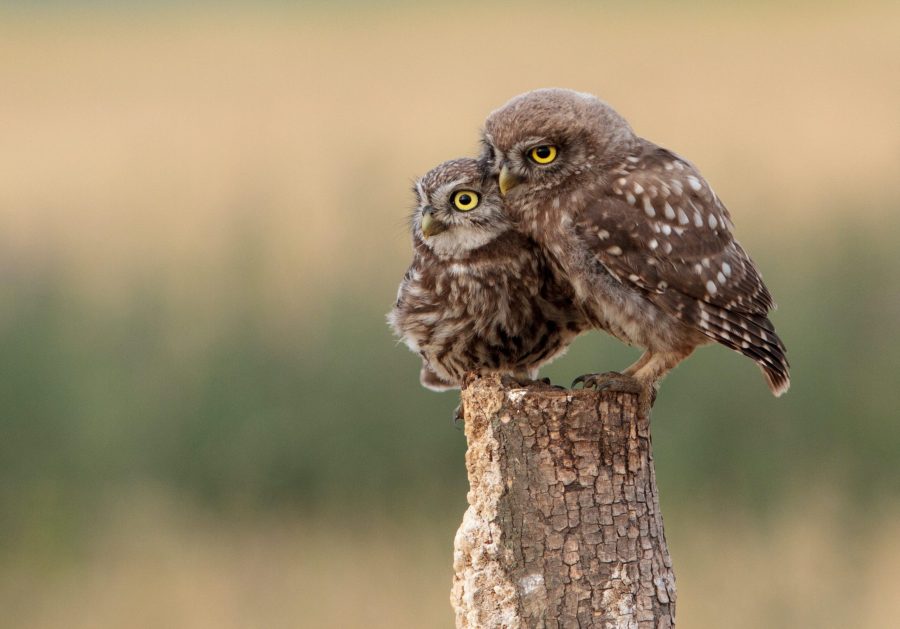There are words that stay in our hearts for life, like those I heard some time ago when visiting an elderly couple. The old woman, sitting on a bench in the dark, poor kitchen, tears in her eyes, said to me: “We are here like two owls”. Her children had emigrated. In summer the house was full of bustle and joyful life, but the rest of the year the old people sat here sad as two owls.
Today, this poignant image of loneliness has infinite faces: of the refugee, of the disappeared, of the one who is hungry for food and “com-passion”, of the one who tells nothing because he has no power, of the one who no longer hopes for anything, of the one who no longer believes in anything.
The old woman’s expression is very profound and true, and you know why: “Animals live, human beings exist”, as Victor Hugo said so well. In my opinion, the essayist Todorov put it best: human beings, as animals, live; as free beings, which they also are, they exist.
Without life in society, without communion with other human beings, we tend towards animalisation, caused by isolation. We only really exist in the eyes of others. Have you ever noticed how a baby tries to catch its mother’s gaze, not only so that she will run to breastfeed or cuddle it, but also because that gaze brings it an indispensable complement: it confirms its existence? The gaze of the other who recognises us is like oxygen for the soul, like air.
We are all born twice: in nature we are born for life and in society we are born for existence. When we lack the social relationship – love, human warmth, recognition – we begin to wither, unhappy like stray dogs or owls in their dark hole. Without existential communion life is extinguished. “I exist only to the extent that I exist for someone”, according to the philosopher Mounier. I am loved, therefore I exist.
William James wrote that the most diabolical punishment that could be inflicted on a person – if physically possible – was to abandon him or her to society and make him or her completely unnoticed. Such is the situation of the outcast, the excluded, the socially unrecognised.
Yes, the most diabolical punishment, the most hellish, is total isolation. I believe that this is hell: the realm of complete and perpetual oblivion. If “in heaven”, according to Teresa of Avila, “there will be no indifferent gazes”, in hell, on the contrary, absolute indifference reigns. The life of many people resembles a real hell.
Perhaps the greatest suffering of the poor is not poverty, but the fact that nobody gives them any consideration or importance. According to Adam Smith, the poor are those whom no one notices: “The poor man comes and goes unnoticed, and in the midst of the crowd he is in the same darkness as in his hut”.
Old age, on the other hand, is a diminution not only of strength but also of existence. “I began to die of loneliness” – complained Victor Hugo. Existence can end before life comes to an end.
That is why, when we speak of social exclusion, we must first of all ask ourselves: excluded from what? From what we might call material goods, such as bread, housing, clothing, medical care, physical and social security? To exclude from these goods many people, or a few people, or a single person, is a flagrant injustice.
But there are other kinds of social goods – let us call them immaterial, if you like – which are no less valuable. Companionship, friendship, culture, hope, affection, we enjoy them because we live in society. To deny them to a person is as unjust as to deprive them of bread or medicine.
But it is important to remember that no political organisation, however just it may be, can provide its citizens with these goods. Nor is it the task of the state. It is up to the individual, to civil society. It is the responsibility of non-governmental organisations and religious institutions to put pressure on the political powers to arrange things in such a way that everyone has a share of material goods, but first they must fill their neighbour with hope and meaning, give him comfort and tenderness, promote his self-esteem and joy, and also offer him, if he is a believer, divine grace.
Only a lucid solidarity can put an end to unjust exclusion and make material and immaterial goods share in their rightful owners: all people. Starting with the most vulnerable and alone. Those who are thrown there like moles or owls.
Abílio Pina Ribeiro, cmf
(PHOTO: Zdeněk Macháček)






